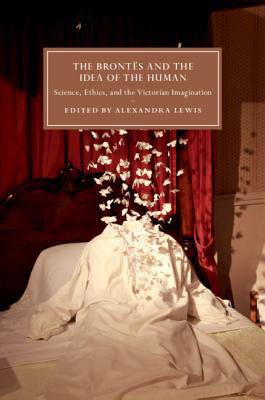
- Afhalen na 1 uur in een winkel met voorraad
- Gratis thuislevering in België vanaf € 30
- Ruim aanbod met 7 miljoen producten
- Afhalen na 1 uur in een winkel met voorraad
- Gratis thuislevering in België vanaf € 30
- Ruim aanbod met 7 miljoen producten
Zoeken
The Brontës and the Idea of the Human
Science, Ethics, and the Victorian Imagination
€ 172,95
+ 345 punten
Omschrijving
What does it mean to be human? The Brontë novels and poetry are fascinated by what lies at the core - and limits - of the human. The Brontës and the Idea of the Human presents a significant re-evaluation of how Charlotte, Emily, and Anne Brontë each responded to scientific, legal, political, theological, literary, and cultural concerns in ways that redraw the boundaries of the human for the nineteenth century. Proposing innovative modes of approach for the twenty-first century, leading scholars shed light on the relationship between the role of the imagination and new definitions of the human subject. This important interdisciplinary study scrutinises the notion of the embodied human and moves beyond it to explore the force and potential of the mental and imaginative powers for constructions of selfhood, community, spirituality, degradation, cruelty, and ethical behaviour in the nineteenth century and its fictional worlds.
Specificaties
Betrokkenen
- Uitgeverij:
Inhoud
- Aantal bladzijden:
- 310
- Taal:
- Engels
- Reeks:
- Reeksnummer:
- nr. 115
Eigenschappen
- Productcode (EAN):
- 9781107154810
- Verschijningsdatum:
- 27/06/2019
- Uitvoering:
- Hardcover
- Formaat:
- Genaaid
- Afmetingen:
- 152 mm x 229 mm
- Gewicht:
- 589 g

Alleen bij Standaard Boekhandel
+ 345 punten op je klantenkaart van Standaard Boekhandel
Beoordelingen
We publiceren alleen reviews die voldoen aan de voorwaarden voor reviews. Bekijk onze voorwaarden voor reviews.










